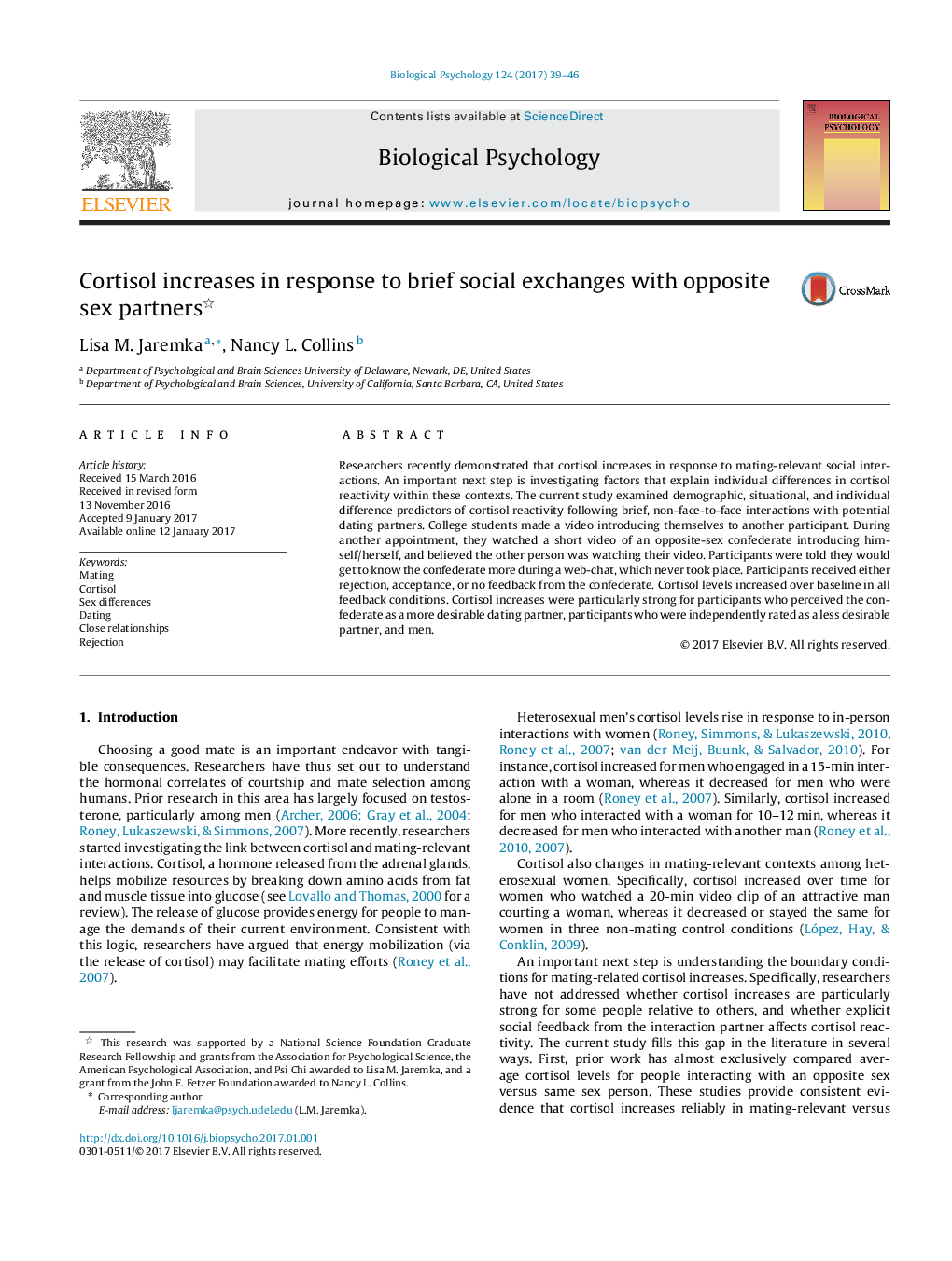| Article ID | Journal | Published Year | Pages | File Type |
|---|---|---|---|---|
| 5040457 | Biological Psychology | 2017 | 8 Pages |
•Cortisol rose in response to a brief non-face-to-face opposite sex social exchange.•This increase was stronger for people who rated the confederate as more desirable.•This increase was also stronger among those independently rated as less desirable.•This increase was also stronger among men.•Cortisol levels were similar for rejecting, accepting, or no feedback.
Researchers recently demonstrated that cortisol increases in response to mating-relevant social interactions. An important next step is investigating factors that explain individual differences in cortisol reactivity within these contexts. The current study examined demographic, situational, and individual difference predictors of cortisol reactivity following brief, non-face-to-face interactions with potential dating partners. College students made a video introducing themselves to another participant. During another appointment, they watched a short video of an opposite-sex confederate introducing himself/herself, and believed the other person was watching their video. Participants were told they would get to know the confederate more during a web-chat, which never took place. Participants received either rejection, acceptance, or no feedback from the confederate. Cortisol levels increased over baseline in all feedback conditions. Cortisol increases were particularly strong for participants who perceived the confederate as a more desirable dating partner, participants who were independently rated as a less desirable partner, and men.
